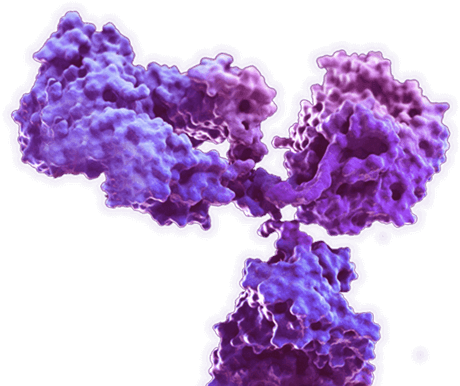AibGenesis™ Mouse Anti-PDGFC Antibody (CBMOAB-54151FYA)
Cat: CBMOAB-54151FYA

Certificate of Analysis Lookup
To download a Certificate of Analysis, please enter a lot number in the search box below. Note: Certificate of Analysis not available for kit components.
Lot Number
To download a Certificate of Analysis, please enter a lot number in the search box below. Note: Certificate of Analysis not available for kit components.
Lot Number
- Product List
- Specifications
- Application Information
- Target
| Sub Cat | Clonality | Species Reactivity | Application | Clone | Conjugate | Size | |
| CBMOAB-54151FYA | Monoclonal | Rhesus (Macaca mulatta), Chimpanzee (Pan troglodytes), Marmoset | WB, ELISA | MO54151FYA | 100 µg | ||
| MO-AB-24079W | Monoclonal | Chimpanzee (Pan troglodytes) | WB, ELISA | MO24079W | 100 µg | ||
| MO-AB-61210W | Monoclonal | Marmoset | WB, ELISA | MO61210W | 100 µg |
Specifications
| Host species | Mouse (Mus musculus) |
| Species Reactivity | Rhesus (Macaca mulatta), Chimpanzee (Pan troglodytes), Marmoset |
| Clone | MO54151FYA |
| Specificity | This antibody binds to Rhesus PDGFC. |
| Format | Liquid or Lyophilized |
| Storage | Store at 4°C: short-term (1-2weeks) Store at -20°C: long-term and future use |
| Purity | > 90% was determined by SDS-PAGE |
| Purification | Purified with Protein A or G affinity chromatography |
Application Information
| Application | WB, ELISA |
| Application Notes | ELISA: 1:1000-1:3000 Other applications are to be developed. The optimal dilution should be determined by the end user. |
Target
| Introduction | The protein encoded by this gene is a member of the platelet-derived growth factor family. The four members of this family are mitogenic factors for cells of mesenchymal origin and are characterized by a core motif of eight cysteines. This gene product appears to form only homodimers. It differs from the platelet-derived growth factor alpha and beta polypeptides in having an unusual N-terminal domain, the CUB domain. Alternatively spliced transcript variants have been found for this gene. (From NCBI) |
| Product Overview | Mouse Anti-Rhesus PDGFC Antibody is a mouse antibody against PDGFC. It can be used for PDGFC detection in Western Blot, Enzyme-Linked Immunosorbent Assay. |
| Alternative Names | Platelet-derived growth factor C; PDGFC |
| UniProt ID | H9FBJ5 |
| Protein Refseq | The length of the protein is 118 amino acids long. The sequence is show below: VFGRKSRVMDLNLLTEEVRLYSCTPRNFSVSIREELKRTDTIFWPGCLLVKRCGGNCACCLHNCNECQCVPSKVTKKYHEVLQLRPKTGVRGLHKSLTDVALEHHEECDCVCRGSTGG. |
For Research Use Only | Not For Clinical Use.
Online Inquiry

